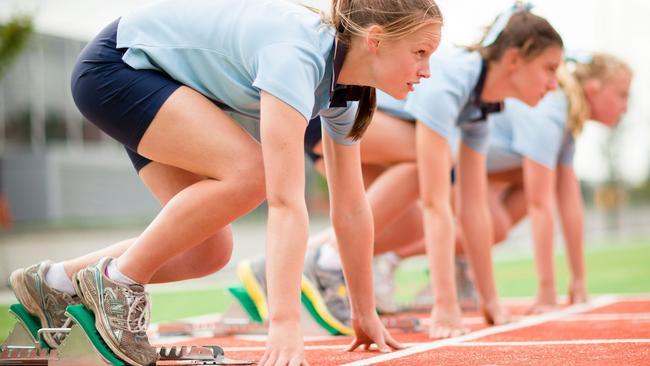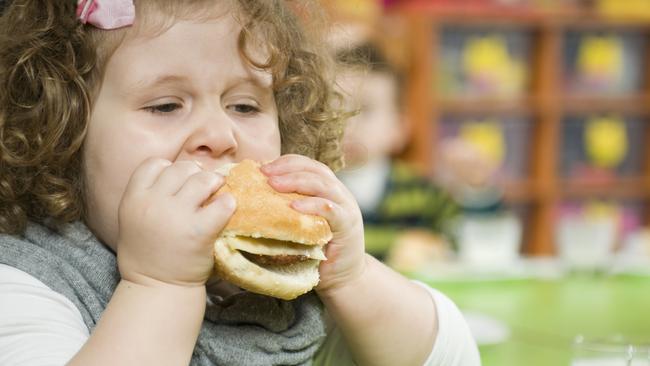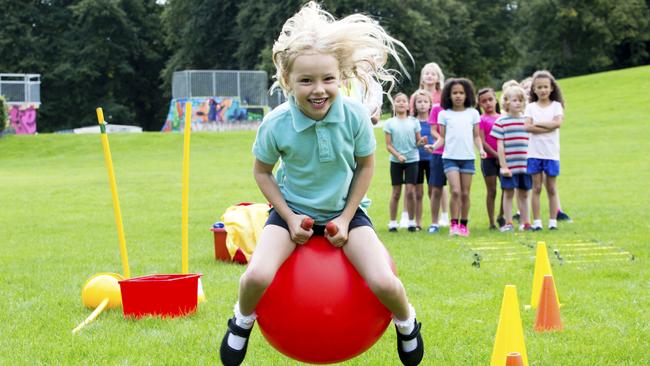Sport should be compulsory in schools
Like maths and English, physical education should be compulsory. What are we waiting for? Obesity is rising and all evidence suggests active kids achieve better educational outcomes.

Rendezview
Don't miss out on the headlines from Rendezview. Followed categories will be added to My News.
We pride ourselves on being a sporting nation, but when most of us do no exercise at all, who are we kidding? Armchair athletes do not a sporting nation make.
So as we get into the footy season and look ahead to Rio and the Olympic medal hopes of Australia’s elite athletes, let’s turn our gaze to the grassroots.
It’s here that we need to do so much better — not only to lift our place on the world podium in the longer term but, more importantly, improve the physical and mental health, social intelligence and academic outcomes of the broader population.
Why sport is not compulsory in schools is beyond me.
Sure, there are guidelines that recommend minimum amounts of physical activity — in Queensland, it’s 30 minutes per day in primary, and two hours a week in lower-secondary — but when as little as 15 per cent of schools follow them, guidelines are meaningless.
Every few years, someone calls for mandating sport in the curriculum. In 2012 it was Australia’s Olympic chief John Coates, after our disappointing medal haul at the London games. In 2003 it was Tasmanian Liberal Guy Barnett, who said physical literacy was the key to curbing childhood obesity: “Maths and English are compulsory; physical education should also be compulsory.”
What are we waiting for? Obesity is getting worse, and fat kids typically become fat adults.
According to a report in The Courier-Mail this week, 27 per cent of Queensland kids are overweight or obese. Poor diet is a contributor, but when every expert and scientific indicator screams at us to move, why are we sitting still?

Typical arguments against mandated sport include an overcrowded curriculum and a lack of specialist PE teachers. Not all kids have interest, competence or confidence in playing sport.
I don’t doubt this is true, but let’s talk priorities, people.
Physical activity has been proven to not only trim waistlines but also boost mental wellbeing and academic performance.
Children today do not exercise accidentally. Too many are glued to screens, wouldn’t have a clue how to climb a tree, don’t walk to school, ride bikes, or explore the outdoors anywhere near as much as in generations past.
Parents too are woefully inactive. More than 60 per cent of adults do no formal exercise — walking from the couch to the fridge doesn’t count — so kids lack role models. Mums and dads are working longer and the increase in single-parent homes makes it harder to ferry children to and from club sport. The cost is also prohibitive to many.
A confluence of factors conspires against kids participating in sport after the age of 14, as ABS statistics bear out.
I would argue that it is precisely during these later years that teens — in crucial stages of emotional development and influenced greatly by peers and rubbish on the internet — need to be involved. Sport keeps them out of trouble and teaches valuable life skills — team work, leadership and resilience among them.
Yet commonly, in senior schooling, the focus firms on academics, and anyone who chooses PE as a subject is pegged as a dimwit. Playing “too much” sport is a bad thing.
How shortsighted.
Team sport is the only extra-curricular activity to make a significant difference to students’ academic grades.
Researchers from the University of South Carolina and Pennsylvania State University who studied 9700 students aged 14-18 also found teenagers who belong to school sports clubs — as opposed to drama or debating — are more likely to complete their education and do tertiary study.

Simon Hollingsworth is a former track and field athlete who competed in two Olympics. He is also a Rhodes Scholar. The CEO of the Australian Sports Commission, Hollingsworth is puzzled by the “urban myth” that sport and academics are out of sync.
“It’s crazy — all the evidence suggests the contrary — kids who are physically active achieve better educational outcomes.”
He says the secret is time management — another great life skill.
We measure academic disciplines by NAPLAN and other formal testing, so why not assess physical literacy?
Hollingsworth says the highest-achieving Asian countries, including Singapore, are integrating sport into the curriculum, recognising the importance of a holistic health and educational framework.
Healthy mind, healthy body.
The Federal Government’s $100 million Sporting Schools program, a collaboration with the ASC and 30 national sporting bodies, has reached 4000 schools since its launch in July, and aims for 5700 by 2017 — roughly 75 per cent of schools and 860,000 children.
The program offers resources, including coaches, and broadens the traditional notion of sport to get more kids involved. Cardio tennis and 3-on-3 basketball are big hits.
More needs to be done.
Extend the program beyond Year 10 to senior schooling, where it can help kids continue on the path to better health and personal achievement. Revise the curriculum so physical literacy is valued, and with it the role of PE teachers so the profession attracts the right candidates. Equip teachers with the competencies to ensure sport is an enjoyable experience and not an early introduction to the ugly side of competition.
While it should not fall solely on educators to get Australians moving, schools are well-placed to make a difference. Becoming a nation of sloths is a cost no economy can afford and no society should accept.
A fundraising dinner to support Queensland athletes heading to the Rio Olympics will be held at Brisbane’s Royal International Convention Centre on May 21. Tickets available here.
Kylie Lang is an associate editor at The Courier-Mail.
kylie.lang@news.com.au
Originally published as Sport should be compulsory in schools


